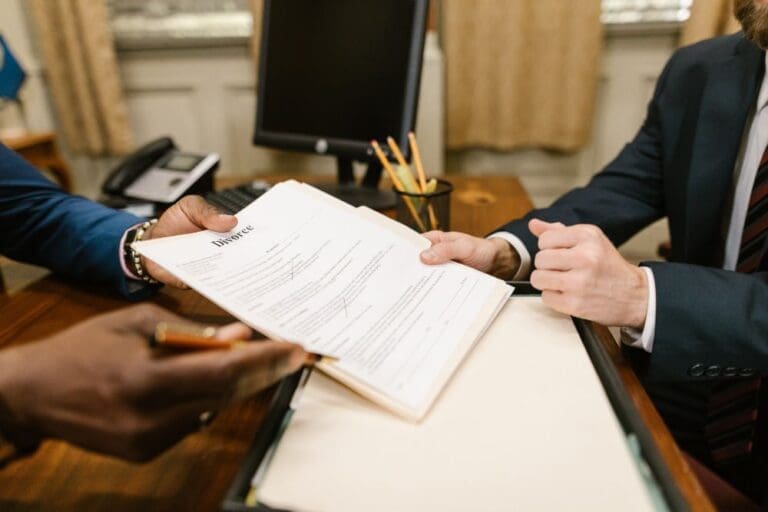Life can take an unexpected turn in a moment. One minute you’re going about your day, and the next you find yourself facing a criminal accusation. It’s confronting, confusing, and for many, completely overwhelming. But being accused of a crime is not the end- it’s the beginning of a legal journey that demands clarity, action, and professional support.
Whether the allegations are minor or serious, what you do next could significantly impact your future. This guide walks you through the first essential steps and highlights why having a legally valid will is just as important when navigating complex legal terrain.
The Immediate Shock: What You Might Feel
Facing criminal charges often stirs up a mix of emotions, fear, embarrassment, anger, and helplessness. These feelings are valid. But amidst the emotional storm, the key is not to act impulsively. The way forward involves measured steps and informed decisions.
Step One: Stay Calm and Seek Legal Advice Early
The most critical action is to seek expert legal guidance as soon as possible. Don’t delay. Engaging a qualified Criminal Lawyer Melbourne ensures you’re protected from the outset.
A good criminal lawyer will:
- Explain your rights clearly
- Guide you on what to say (and not say) to police
- Review the evidence against you
- Represent you in court and during investigations
- Help you avoid unnecessary legal pitfalls
Even a seemingly minor offence can have long-term consequences if mishandled. Early legal advice can often prevent matters from escalating unnecessarily.
Step Two: Understand the Charges
It’s essential to understand exactly what you’re being accused of and the possible consequences. Charges could range from:
- Traffic offences
- Assault or domestic violence
- Theft or fraud
- Drug possession or distribution
- White-collar crime
Understanding the legal definition of the charge and what the prosecution must prove will shape your defence strategy.
Step Three: Preserve Evidence and Be Transparent with Your Lawyer
Your lawyer can only defend you properly if they have the full picture. Be completely open and honest. Holding back information- no matter how minor it may seem- can compromise your defence.
Also, gather and preserve any relevant evidence:
- Texts, emails, or social media interactions
- Witness contact information
- Medical or financial records
- CCTV footage, if applicable
The sooner you present these to your lawyer, the stronger your defence will be.
Step Four: Prepare for Court and Comply with All Requirements
If you’ve been given a court date or any other obligations (such as reporting to police), comply fully. Failing to attend court or breaching conditions can worsen your legal position.
Your lawyer will help you prepare:
- Explaining what to expect on the day
- Helping you present yourself appropriately
- Coaching you on how to address the court if needed
Preparation is key to presenting yourself as responsible and cooperative.
Why Wills Matter When You’re Facing Legal Trouble
You might be wondering what writing a will has to do with being accused of a crime.
Here’s why it matters:
- Legal planning isn’t just for the elderly. Anyone at any age facing criminal charges should ensure their affairs are in order, especially if there’s a chance of a prison sentence or lengthy court process.
- A valid will protects your loved ones. If something unexpected happens, a legal will ensures your assets are distributed as per your wishes.
- Power of attorney and medical directives may also be needed, depending on your situation.
Creating or updating your will with the help of a professional ensures that it meets all legal requirements in Victoria. DIY templates or verbal promises are often invalid and leave families tangled in lengthy disputes.
Common Misconceptions About Wills
Let’s debunk a few myths:
“I’m too young to need a will.”
If you own property, have children, or want to specify how your estate is handled—you’re not too young.
“It’s too expensive.”
A professionally drafted will is a small investment compared to the cost of probate disputes if you die without one.
“I already have one from years ago.”
Life circumstances change. Marriage, divorce, children, or changes in assets are all reasons to update your will.
How to Start: Creating or Updating Your Will
It’s easier than most people think. Here’s what to do:
- Contact a legal professional – Ideally someone with expertise in both criminal and estate law.
- Gather relevant documents – IDs, property deeds, superannuation details, etc.
- Think about your beneficiaries – who should inherit and who should manage your estate.
- Be open to professional advice – They’ll ensure your will is not only valid but structured to avoid future conflict.
Conclusion: Your Legal Security Net Starts with the Right Guidance
Being accused of a crime can feel like your world is unravelling. But it’s not the end but it’s a moment to regroup, seek guidance, and take practical steps to protect your rights and your future.
A strong legal defence and an up-to-date, professionally prepared will are two cornerstones of safeguarding your life and your loved ones during difficult times. Don’t wait for the situation to worsen before acting. Speak to a legal professional today and take control.
For compassionate, experienced guidance in both criminal defence and estate planning, the team at Melbourne Lawyers & Mediators is here to help.





